Feed aggregator
Quality Content

Sookie, the old bulldog, has to have canned dog food in the wake of her surgery so her mouth can recover. She absolutely loves it. She gobbles it up, and then we suffer.
Yesterday, as I was trying to catch up on a novella we are working on, because we need another release this year, Sookie was in a rare form even for her. It went somewhat like this:
The cave passage stretched in front of me, a narrow tunnel painted with bioluminescent swirls of strange vegetation. It split about twenty yards ahead, with one end of it curving to the right and the other cutting straight into the gloom.
Fart,
The pale green and pink radiance of the foreign fungi and lichens didn’t illuminate the darkness, but made it seem even deeper.
A cold draft flowed from the tunnel, bringing with it an odd acrid stench.
Fart.
Bear whined softly by my side. Whining seemed entirely appropriate. I didn’t want to go into that darkness either.
Fart.
“We don’t have a choice,” I told the dog.
Something rustled in the darkness, a strange whispering sound.
Faaaaaart!
Bear hid behind me.
“Some attack dog you are.”
Fart, fart, faaaart.
I posted about my woes on Facebook, because I wanted to share the glamor. This morning, Facebook delivered this gem to me.

We knew she was a special dog, but we had no idea that her gas troubles were high quality content. We feel so privileged to share it with you.

The post Quality Content first appeared on ILONA ANDREWS.
Women in SF&F Month: M. H. Ayinde
Today’s Women in SF&F Month guest is M. H. Ayinde! Her science fiction, fantasy, and horror short stories include “The Techwork Horse” (featured on the Locus Recommended Reading List), “Blind Eye” (selected for the BSFA Award longlist), “The Walls of Benin City” (selected for the BSFA Award longlist and The Best of World SF: Volume 3), and “Worst Place Ever – Avoid!” (winner of the March 2021 Apex Magazine Microfiction Contest). A Song of Legends Lost, her debut novel and […]
The post Women in SF&F Month: M. H. Ayinde first appeared on Fantasy Cafe.To Save Your Sanity, Take Steven Leacock’s Nonsense Novels and Call Me in the Morning (or, Why Are Canadians Funny?)
You need a good laugh right now. How do I know this? I know this because I need a good laugh right now. Everyone I know needs a good laugh right now, so it stands to reason that you need one too, doesn’t it?
So… where to go for that much-needed laugh? Well, there are standup specials on Netflix and the other streamers, you’ve got SNL, there are the many late-night topical jokemeisters — all the usual suspects. Now if that stuff really makes you feel better, more power to you; there’s so much of it available these days, you’re in the enviable position of being a kid locked in a candy factory. For me, though, none of those folks can talk for two minutes without referring to you-know-who who lives you-know-where and is up to you-know-what, and I’m sorry, but all that usually ends up making me feel worse.
To maintain minimal sanity, sometimes what I need most is something that will take me to a place that Thomas Hardy (who briefly hosted the Tonight Show after Conan O’Brien was fired) called “far from the madding crowd.” I don’t want something that’s out to earn my approval because it’s correct; I want something that’s out to make me laugh because it’s funny.
Fortunately, several years ago, I found a fabulous device that accomplishes just that. It’s called… are you ready for this? It’s called a book. And that’s not the half of it. It was written by a fellow named Stephen Leacock, and this guy was… I can’t believe I’m saying this… he was… a Canadian.
How can a Canadian be funny? The answer to that is above my pay grade (could it have anything to do with the fact that for the past two hundred and fifty years, Canadians have had a south-facing front row seat at the world’s most outrageous farce… nah, that can’t be it), but I do know that Canadians are funny, and I’ve known it ever since the mid 70’s when I fell head over heels in love with SCTV, which I believe to be the greatest sketch comedy show of all time, despite the fact that it was mostly a product of Canada. I stopped watching SNL over forty years ago, but I still regularly pop in an SCTV DVD; I just watched one last night, as a matter of fact. In any case, even if Bobby Bitman and Lola Heatherton and Johnny LaRue and Bill Needle and Gerry Todd had never existed, you could still win your Canadian Comic Case by offering Stephen Leacock as exhibit A, and if you won’t take my word for it, the man was Groucho Marx’s favorite comic writer — of any nationality. Think about that — he made Groucho Marx laugh.
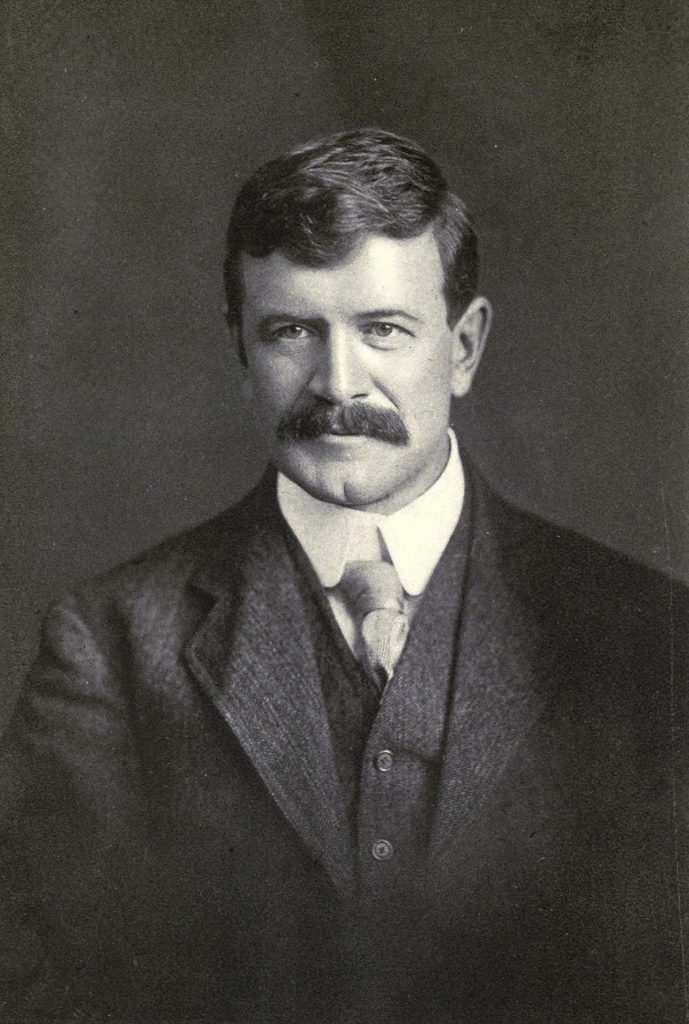 That’s funny – he looks funny, but he doesn’t look Canadian
That’s funny – he looks funny, but he doesn’t look Canadian
And yes, he was really a Canadian; though born in England in 1869, Stephen Leacock lived in Canada from the age of six. He was a resident of Montreal and taught economics at several Canadian universities.
But what you want to know right now is the name of his book, right? The one I’m talking about (he wrote many more) is called Nonsense Novels, and it was first published in 1911. It’s currently available in a few different paperback editions, though the one I have, a nice hardcover from New York Review Books, is unfortunately out of print. I say unfortunately because hardcovers hold up better than paperbacks, and in the time that I’ve had my copy, it’s gotten a lot of hard use. I imagine the same will be true of whatever copy you get your hands on.
Nonsense Novels consists of ten short chapters (each one anywhere from ten to fifteen pages; my NYRB edition is only 159 pages long), and each chapter is a self-contained parody of a nineteenth or early twentieth century popular fiction genre, most of which have been deposited on the ash-heap of publishing, though a few are still alive and kicking. That doesn’t matter, though — the customary devices, the stock characters and situations, the tropes and cliches of each genre have long since been engraved on our cultural memory (through movies, if nothing else) and you’ll have no problem getting the jokes.
So, what we have here are spot-on send-ups of:
The Sherlock Holmesian tale of deduction and ratiocination (Maddened by Mystery or, The Defective Detective), in which the Great Sleuth masterfully assembles all of the clues and comes to the conclusion that the missing “Prince” he’s searching for is not, as he first thought, one of the crowned heads of Europe whose absence will precipitate an international crisis, but is in fact a dachshund whose presence is required at the dog show. He doesn’t locate the animal, but being a master of disguise, a solution easily presents itself to his keen mind: “Rise, dear lady,” he continued. “Fear nothing. I WILL IMPERSONATE THE DOG!!!”
The ghost story (“Q.” A Psychic Pstory of the Psupernatural). “At the moment when Annerly spoke of the supernatural, I had been thinking of something entirely different. The fact that he should speak of it at the very instant when I was thinking of something else, struck me as at least a very singular coincidence.”
A Walter Scott-style hearty historical (Guido the Gimlet of Ghent or, A Romance of Chivalry). “First Guido, raising his mace high in the air with both hands, brought it down with terrible force on Tancred’s mailed head. Then Guido stood still, and Tancred raising his mace in the air brought it down upon Guido’s head. Then Tancred stood still and turned his back. And Guido, swinging his mace sideways, gave him a terrible blow from behind, midway, right centre. Tancred returned the blow. Then Tancred knelt down on his hands and knees and Guido brought the mace down on his back. It was a sheer contest of skill and agility.”
A heart-wrenching story about the trials and travails of a spunky lower-class heroine (Gertrude the Governess or, Simple Seventeen), which begins, “Synopsis of Previous Chapters: There are no Previous Chapters.” The modest charm of the orphaned Gertrude makes her everyone’s favorite: “Even the servants loved her. The head gardener would bring a bouquet of beautiful roses to her room before she was up, the second gardener a bunch of early cauliflowers, the third a spray of asparagus, and even the tenth and eleventh a sprig of mangel-wurzel or an armful of hay. Her room was full of gardeners all the time, while at evening the aged butler, touched at the friendless girl’s loneliness, would tap softly at her door to bring her a rye whiskey and seltzer or a box of Pittsburgh Stogies.”
An inspiring Horatio Alger up-from-nothing success story (A Hero in Homespun or, The Life Struggle of Hezekiah Hayloft). “Such is the great cruel city, and imagine looking for work in it. You and I who spend our time in trying to avoid work can hardly realize what it must mean. Think how it must feel to be alone in New York, without a friend or a relation at hand, with no one to know or care what you do. It must be great!”
A Dostoyevskian drama of living-in-Russia-induced existential madness (Sorrows of a Super Soul or, The Memoirs of Marie Mushenough, Translated, by Machinery, out of the Original Russian). “How they cramp and confine me here — Ivan Ivanovitch my father, and my mother (I forget her name for the minute), and all the rest. I cannot breathe. They will not let me. Every time I try to commit suicide they hinder me. Last night I tried again. I placed a phial of sulphuric acid on the table beside my bed. In the morning it was still there. It had not killed me. They have forbidden me to drown myself. Why! I do not know why? In vain I ask the air and the trees why I should not drown myself? They do not see any reason why. And yet I long to be free, free as the young birds, as the very youngest of them. I watch the leaves blowing in the wind and I want to be a leaf. Yet here they want to make me eat. Yesterday I ate a banana. Ugh!”
A Robert Louis Stevensonish saga of Scotland (Hannah of the Highlands or, The Laird of Loch Aucherlocherty), which chronicles the tragic feud between the McShamuses and the McWhinuses: “It had been six generations agone at a Highland banquet, in the days when the unrestrained temper of the time gave way to wild orgies, during which theological discussions raged with unrestrained fury. Shamus McShamus, an embittered Calvinist, half crazed perhaps with liquor, had maintained that damnation could be achieved only by faith. Whimper McWhinus had held that damnation could be achieved also by good works. Inflamed with drink, McShamus had struck McWhunus across the temple with an oatcake and killed him.”
A Jack London-like sea story (Soaked in Seaweed or, Upset in the Ocean: An Old-Fashioned Sea Story). “By noon of the next day the water had risen to fifteen-sixteenths of an inch, and on the next night the sounding showed thirty-one thirty-seconds of an inch of water in the hold. The situation was desperate. At this rate of increase, few, if any, could tell where it would rise to in a few days.”
A heartstring-tugging Christmas story (Caroline’s Christmas or, The Inexplicable Infant) — the subtitle alone always makes me laugh out loud. “What was that at the door? The sound of a soft and timid rapping, and through the glass of the door-pane a face, a woman’s face looking into the fire-lit room with pleading eyes. What was it she bore in her arms, the little bundle that she held tight to her breast to shield it from the falling snow? Can you guess, dear reader? Try three guesses and see. Right you are. That’s what it was.”
And finally, an H.G. Wells style scientific romance (The Man in Asbestos: An Allegory of the Future): “It seemed unfair that other writers should be able at will to drop into a sleep of four or five hundred years, and to plunge head-first into a distant future and be a witness of its marvels. I wanted to do that too.” The narrator induces his centuries-long sleep by a novel method: “I bought all the comic papers that I could find, even the illustrated ones. I carried them up to my room in my hotel; with them I brought up a pork pie and dozens of doughnuts. I ate the pie and the donuts, then sat back in bed and read the comic papers one after the other. Finally, as I felt the awful lethargy stealing upon me, I reached out my hand for the London Weekly Times, and held up the editorial page before my eye.” That does it; when he wakes up it’s 3000 A.D.
These stories are all unfailingly funny, some riotously so. Leacock hits the genre bull’s-eyes every time; the absurdities of each kind of tale are instantly identified and gleefully exploited, but there’s nothing mean-spirited about these literary burlesques. To write such unerring parodies Leacock had to be well-read in the target genres, and you can see his knowledge, and even more, his affection in every chapter. The book is like a bag holding ten gleaming jewels, but not plastic fakes like the ones kids used to be able to buy at Disneyland for about ten dollars more than you had been planning to spend; every one of Leacock’s treasures is the real thing, a genuine gem sparkling with purest comedy.
Every day we’re faced with a barrage of bad news, and that makes a book as delightful as Nonsense Novels a priceless treasure indeed. Give it a try and I guarantee you’ll feel better; you’ll laugh out loud, not once, but many times, and maybe — just maybe — you’ll even save your sanity.
And by the way — if you know why Canadians are funny, send the answer and five dollars (American) to me care of Black Gate. Cash only — no checks or money orders, please.
Thomas Parker is a native Southern Californian and a lifelong science fiction, fantasy, and mystery fan. When not corrupting the next generation as a fourth grade teacher, he collects Roger Corman movies, Silver Age comic books, Ace doubles, and despairing looks from his wife. His last article for us was You Are Cordially Invited to a Dinner Party in Hell: The Exterminating Angel
7 Author Shoutouts | Authors We Love To Recommend
Here are 7 Author Shoutouts for this week. Find your favorite author or discover an…
The post 7 Author Shoutouts | Authors We Love To Recommend appeared first on LitStack.
What Feasts at Night - Book Review
 What Feasts at Night (Sworn Soldier #2)by T. Kingfisher
What Feasts at Night (Sworn Soldier #2)by T. KingfisherWhat is it about:The follow-up to T. Kingfisher’s bestselling gothic novella, What Moves the Dead .
Retired soldier Alex Easton returns in a horrifying new adventure.
After their terrifying ordeal at the Usher manor, Alex Easton feels as if they just survived another war. All they crave is rest, routine, and sunshine, but instead, as a favor to Angus and Miss Potter, they find themself heading to their family hunting lodge, deep in the cold, damp forests of their home country, Gallacia.
In theory, one can find relaxation in even the coldest and dampest of Gallacian autumns, but when Easton arrives, they find the caretaker dead, the lodge in disarray, and the grounds troubled by a strange, uncanny silence. The villagers whisper that a breath-stealing monster from folklore has taken up residence in Easton’s home. Easton knows better than to put too much stock in local superstitions, but they can tell that something is not quite right in their home. . . or in their dreams.
What did I think of it:After rereading What Moves the Dead I picked up the second book starring Alex Easton.
And this was yet another awesome read.
What I love about Kingfisher's horror is that it's not jump scares or gory slaughter. Don't get me wrong: I love a good zombie gore fest, or other high octane slaughter story, but atmospheric horror, where you slowly start to realize how bad things are... Perfection!
I really love Alex, they're easy to root for and to me very relatable. Even after the events in the first book Alex hangs on to their logic, unwilling to give in to superstitious beliefs. Being familiar with a lot of folklore and superstitions I could easily see what might be going on. But surprise isn't what makes this story work, instead it's atmosphere and storytelling that carries this book, so I was glued to the pages even knowing what they would discover.
I read this book in one sitting, drawn into it and unwilling to let it go until I reached the end.
You bet I'll get my greedy trotters on the third book once released as well! In the meantime I plan to pick up other books by T. Kingfisher as well. There are two in my TBR pile already.
Why should you read it:It's a wonderful, atmospheric Horror read.
Book review: The Book That Broke The World by Mark Lawrence (The Library Trilogy # 1)

Livira is brains. Evar is muscle. But it’s Mark Lawrence’s book, so you can’t oversimplify it like that.
Sabbers had ravaged Livira’s desert village, but she survived. By sheer luck, she got a possibility to train at the expansive library in the city of Cragh. Livira’s IQ is off the charts, so she learns quicker than anyone else.
Meanwhile, Evar Eventari and his four siblings live in the library, affected by a mysterious Mechanism, capable of transforming books into tangible experiences. They’ve been trapped there for ages, untouched by time’s passage. Each of them gained valuable skills and knowledge from the books they entered, except for Evar. He only knows that something—or someone—is amiss, and so he embarks on a quest to find them.
The story is unique in its approach to romance and time; it spans years for Livira but only days for Evar. Their storylines revolve around each other but focus on many things. Maybe even too many? Anyway, the central theme of knowledge and its power to shape reality impressed me. I found Livira’s story more interesting than Evar’s but both are strong.
The issues I have with the story tie with its length and detailed world-building that slows the pace down and requires a lot of attention. It’s possible all of this will pay off in the sequels; However, I felt some parts simply dragged. The love story between the two is quite peculiar. They’re separated briefly after their first encounter, but it doesn’t stop them from getting deeply in love. Now, it’s not insta-love the way you suspect, but it felt abrupt.
That said, the story keeps personal stakes high and twists are coming left and right, keeping the suspense high. I’m not in love with this book, but I’m interested to see what happens after THIS ending.
No Joke
I know, I know. It’s April Fool’s Day. And Dean Wesley Smith decided to launch a Kickstarter anyway. It’s for his Poker Boy series, which is one of my favorites. If you back it, you’ll get four Poker Boy ebooks and whatever stretch goals we hit. And writers, there’s some really great rewards here. So take a look.
And if you’re uncertain, at least watch the video I did. Enjoy! (Oh, and head to the Kickstarter here.)
The Pilot - Early Reviews!
Anonymously, of course. I wouldn’t want to embarrass them.
~~~
“It was a bold choice writing this entire book without Varic and making the whole thing a flashback to Omega’s past instead, but it paid off.”
~~~
”My favorite scene was probably the six-page instructions on how to craft and polish your own cabinets. Really made me feel immersed in the space fantasy universe.”
~~~
”Too much Lemon.”
~~~
”It’s about time! You’ve finally taken my advice and replaced the Bloopers with a PSA for a rare medical condition. Engorged Face Syndrome doesn’t get the attention it deserves.”
~~~
”You broke the rules, Will. You failed to repost my review to all your social media accounts, so you will suffer my curse. Now you are doomed to wander The Halls until you defeat Gathmat, Duke of Rotting Things.”
~~~
”This book tastes disgusting.”
~~~
”This science fantasy action-adventure novel is okay, but you’re really missing your calling as a writer of Victorian era teen romance vampire murder mysteries.”
Hidden Gods, Cryptids, and Swamp Monsters: March-April Science Fiction Magazines
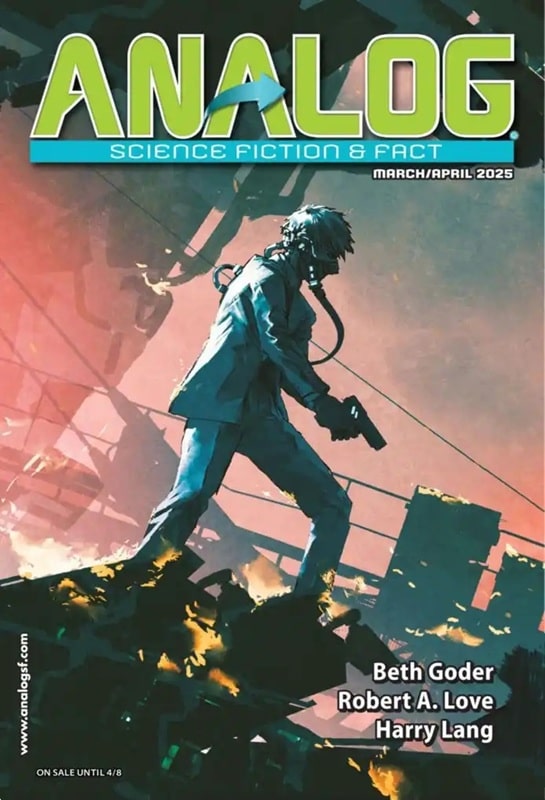
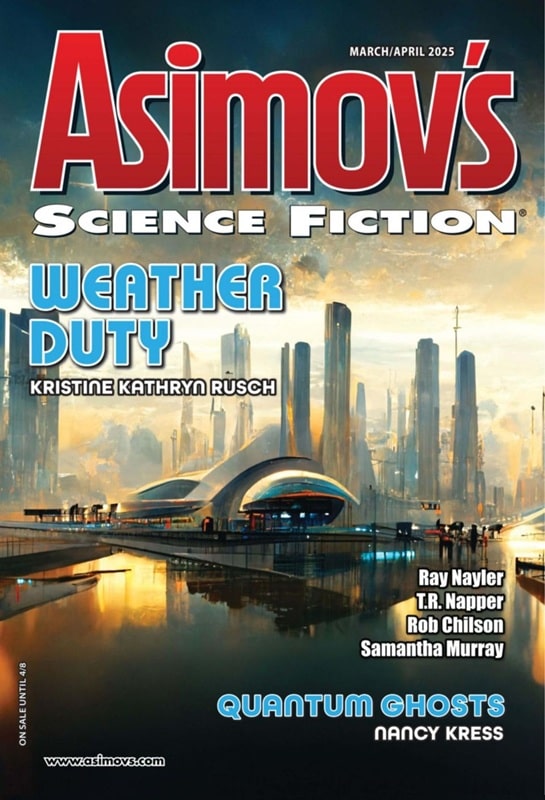
March-April 2025 issues of Analog Science Fiction & Fact
and Asimov’s Science Fiction. Cover art by Shutterstock
The big news this month is that all three print science fiction magazines, as well as the mystery magazines owned by Penny Press, have been sold to a new buyer, a consortium of fans who have have ambitions to maintain and grow all five. Here’s an excerpt from the announcement at Locus Online.
Alfred Hitchcock’s Mystery Magazine, Analog Science Fiction and Fact, Asimov’s Science Fiction, Ellery Queen Mystery Magazine, and The Magazine of Fantasy & Science Fiction have been acquired by Must Read Magazines, a division of a new publishing company, Must Read Books Publishing. All editorial staff from the magazines have been retained in the acquisitions… Must Read Magazines is financially backed by a small group of genre fiction fans. A major investor and board advisor is Michael Khandelwal, the founder of a writing nonprofit and Virginia’s Mars Con toastmaster.
Read all the details, including quotes from Asimov’s editor Sheila Williams, Analog editor Trevor Quachri, and F&SF publisher Gordon Van Gelder, at Locus Online.
Tentatively, I’m willing to believe this is Good News. It makes sense to have all five magazines under one roof, and the recent collapse of F&SF‘s publishing schedule (only one magazine shipped last year) seemed to auger its imminent demise. Though change is rarely good with magazines, and Dell Magazines/Penny Press has been a stalwart home for Asimov’s and Analog for over three decades, since 1992, keeping the magazines healthy and alive through decades of turmoil in the magazine business.
But there’s certainly an argument to be made that the magazines could benefit from a change, and sharing a single home. I’ve seen no announcement on when F&SF will resume publication, and I eagerly await news of the first issues of Asimov’s and Analog from the new publisher, due next week (April 8). Fingers crossed the transition will be smooth.
In the meantime, we’ve got the last Dell Magazine issues of Asimov’s Science Fiction and Analog Science Fiction & Fact in hand, and they’re just as enticing as usual, with contributions from Kristine Kathryn Rusch, Nancy Kress, Marissa Lingen, Ray Nayler, T.R. Napper, Rob Chilson, Robert A. Love, Beth Goder, Anthony Ha, and many more.
Victoria Silverwolf at Tangent Online enjoyed in the latest Asimov’s.
“Weather Duty” by Kristine Kathryn Rusch takes place in the domed city of Las Vegas in a near future where citizens are required to spend time on government committees, analogous to jury duty. The main character serves on the committee that controls the weather. She and a local celebrity are attacked by thugs with high-tech weapons, for reasons that only become clear at the end.
This novella is effective as crime/suspense fiction and as a portrait of a possible future. The speculative technology and the way the government committees work are quite convincing, both in their advantages and their limitations. The protagonist, a dancer and choreographer, is a plausible action heroine, able to deal with a crisis in a believable fashion while remaining a realistic character with whom one can empathize.
“The Hidden God” by T. R. Napper alternates sections of narrative describing unpleasant and often deadly fates facing various rich and famous characters with sections dealing with a philosopher interacting with a highly advanced artificial intelligence. It soon becomes obvious that the powerful AI is attacking people whom it believes are causing enough harm to others that they should be rendered powerless or even killed. It turns out that there is an unexpected connection between the AI and the philosopher. Often as vivid and visceral as any blood-soaked thriller, this novella also raises the age-old issue of whether it is acceptable to help many by harming few. The author doesn’t pretend to solve this ancient dilemma, but uses it to delve into the character of the philosopher.
The drug mentioned in the title of “The Demon of Metrazol” by Ray Nayler is a real one, formerly used to treat mental patients by inducing violent convulsions. In the 1930’s, a woman works at a mental hospital by photographing patients before, during, and after these grim treatments. The patients always display extreme terror when the drug is administered. The story’s ending offers hints as to why this occurs. This is a subtle and unnerving horror story, using disturbing facts of the past to create a growing sense of fear.
The narrator of “The Mystery of My Death” by Rob Chilson is a time traveler who discovers his own grave in the future. He ponders exactly when he might die, goes on a mission to correct an error made in the recent past, and makes a major change in his life. Despite the title and a premise that might seem morbid, this is an upbeat, optimistic story that emphasizes life rather than death.
In “Cryptid or Your Money Back” by Misha Lenau, people can buy kits that allow them to remove their human bodies and become mythical creatures, then switch back whenever they please. The narrator becomes a chupacabra, the so-called goatsucker of Latin American folklore. Reluctant to return to human form, or to socialize with other people who have changed their bodies in this way, the narrator eventually discovers what is really desired.
Read Victoria’s complete review here.
The new Analog is reviewed by the ever reliable Sam Tomaino at SFRevu. Here’s a sample.
The new short fiction begins with the novella, “Murder on the Eris Express” by Beth Goder. Who killed Captain Jeremy on the Eris Express when the sensors of Mo, the ship’s AI were shut off? Mo, who always wanted to be a detective, investigates. Fun story to begin the issue!
“Not Optimus Prime” by Lorraine Alden. Vera is using a QR59 quantum computer to find a large prime number. She actually succeeds at that and something more, but the presence of a man delivering helium puts her in peril. Exciting story.
“It Eats Metal” by Mark Ferguson. Our narrator and his friends investigate a swamp where two students and a dog had disappeared and woman’s legs had been severely injured. What do they find? Nice mystery.
“Those Other Replicator Manufacturers Are Ripping You Off” by Jon Lasser. Some guidelines on getting replicators for your space ship. Amusing.
“Concerning the Multiplicity of Children in Central Florida’s Suburbanized Wetlands” by Ichabod Cassius Kilroy. Mori is almost nine years old and her brother, Orion, is almost five. Each morning she sees ghosts of their possible futures, some good, some bad. Interesting.
“The Code of His Life” by Owen Leddy. Ava and her friend, Alejandro, are in the grey market drug-hacking business. He is offered a job for a big legit firm and takes it. But when he drops dead, Ava knows he was murdered. She investigates and finds a way to have justice. Good story!
“Heat Death” by Kate McLeod. Detective Lidia is called in by her old friend, Chloe, to investigate a man who died of heat in the middle of the Texas desert. What she finds out is tragic. Poignant tale.
The fiction concludes with the novella, “The Return of Tom Dillon” by Harry Lang. This is a follow-up to the novelette, “Hothouse Orchids” by Harry Lang in the January/February 2023. Detective Hector Kovack returns to investigate another murder connected to the group behind the previous one. Does it have a connection to the return of an old friend working on a political campaign? Some good old hard-boiled detective stuff here. I hope I see more.
Yes, there was a crime theme to most of the stories of this issue, I almost thought I was reading Ellery Queen’s Mystery Magazine!
Read Sam’s full review here.
Here’s all the details on the latest SF print mags.
[Click the images for bigger versions.]
 Analog Science Fiction & Science Fact, March-April 2025 contents
Analog Science Fiction & Science Fact
Analog Science Fiction & Science Fact, March-April 2025 contents
Analog Science Fiction & Science Fact
Editor Trevor Quachri gives us a tantalizing summary of the current issue online, as usual.
Normally, we think of the March/April issue as something of our “humor and hoaxes issue,” in keeping with the seasonal spirit of April Fool’s Day. This time, however, we’re focusing on another important day in April: Tax Day. Yes, the only things certain in life are death and taxes, and the bulk of our stories lie at the juncture where death and money meet: crime.
Our lead story from Beth Goder, “Murder on the Eris Express,” might evoke familiar images of a mustachioed Belgian on a train, but the parallels end at the title — I promise you’ve never seen a “detective” quite like this. And there are plenty more SF/crime pieces to accompany this one, including:
“The Return of Tom Dillon,” a sequel to Harry Lang’s excellent future noir, “Hothouse Orchids” [January/February 2023]; the opposite of a locked-room mystery, in “Heat Death,” by Kate MacLeod; the definition of a gambling problem, in John Markley’s “In the Hole”; and more.
Plus, of course, we have to include at least some lighter fare, such as “A Whole Generation” by Timons Esias and “Mr. Palomar Goes to Space” by Hayden Trenholm, just for starters, plus our fact article, “Reflections on Mirror Life,” by Robert A. Love — think biochemistry, not Star Trek — and all our regular columns, as well as maybe a surprise or two!
Here’s the full TOC.
Novellas
“Murder on The Eris Express,” Beth Goder
“The Return of Tom Dillon,” Harry Lang
Novelettes
“The Code of His Life,” Owen Leddy
“Heat Death,” Kate MacLeod
Short Stories
“Not Optimus Prime,” Lorraine Alden
“Ti Eats Metal,” Mark Ferguson
“To Reap, To Sow,” Lyndsey Croal
“The Emergency Contact,” Arendse Lund
“Those Other Replicator Manufacturers Are Ripping You Off,” Jon Lasser
“Track Eats Track,” Avi Burton
“Concerning the Multiplicity of Children in Central Florida’s Suburbanized Wetlands,” Ichabod Cassius Kilroy
“Palomar Goes to Space,” Hayden Trenholm
“Echo, Write to All,” Nate Givens
“The Timecop and the Timesocial-worker,” S.L. Harris
“If the Weather Holds,” Marissa Lingen
“Murder With Soft Words,” Mike Duncan
“In the Hole,” John Markley
Probability Zero
“A Whole Generation,” Timons Esaias
Flash Fiction
In Her Element, M.t. Reiten
Science Fact
Reflections On Mirror Life, Robert A. Love
Poetry
The Dark Matter Storm, Deborah L. Davitt
Precocious Child, Alexander Senko
Reader’s Departments
Guest Editorial: Seeking Scientific Common Ground, Even On Guns, Richard A. Lovett
In Times To Come
The Alternate View, John G. Cramer
The Reference Library, Rosemary Claire Smith
Brass Tacks
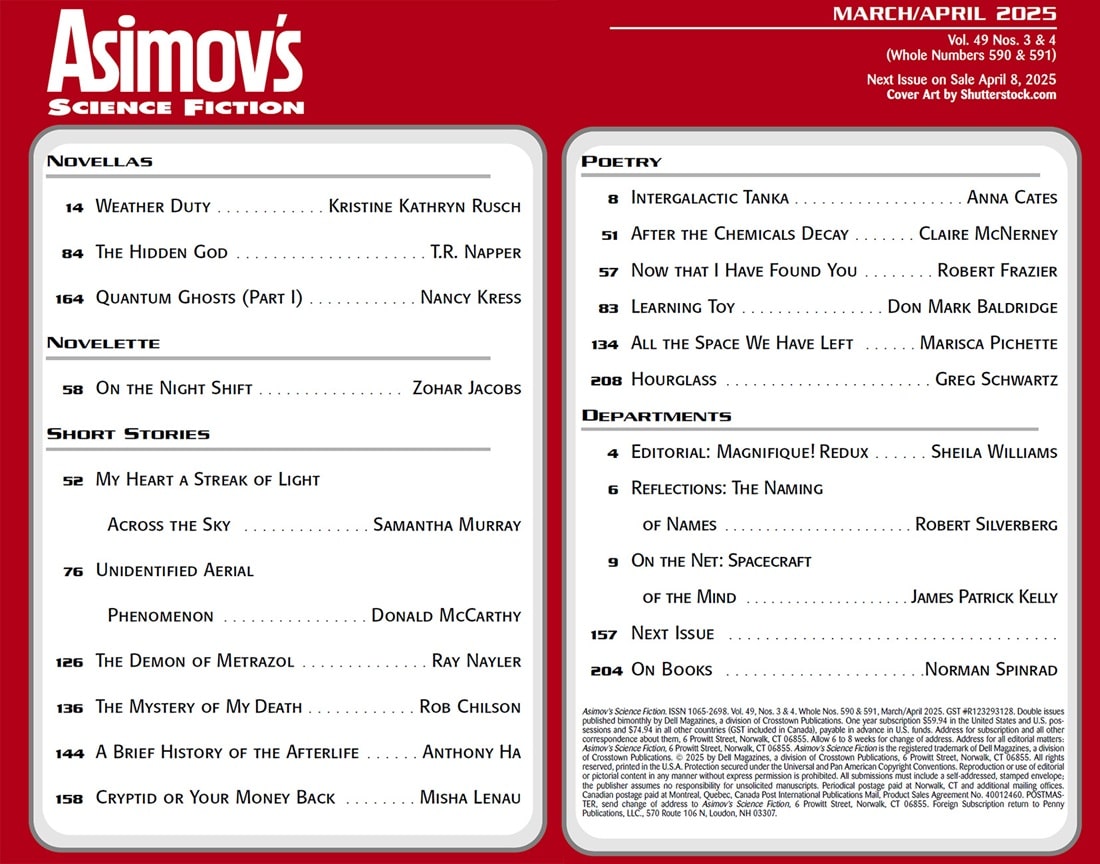 Asimov’s Science Fiction, March-April 2025 contents
Asimov’s Science Fiction
Asimov’s Science Fiction, March-April 2025 contents
Asimov’s Science Fiction
Sheila Williams provides a handy summary of the latest issue of Asimov’s at the website.
Our March/April 2025 issue is bursting with fiction. We have three exciting novellas stuffed into our pages. Kristine Kathryn Rusch opens the issue with a thrilling story about “Weather Duty”; T.R. Napper brings us an intense tale about a rogue AI in “The Hidden God”; and Nancy Kress bookends the issue with Part 1 of a giant novella that exposes the terrifying consequences of coexistence with “Quantum Ghosts”!
Ray Nayler reveals the true horror behind “The Demon of Metrazol”; Rob Chilson attempts to resolve “The Mystery of My Death”; new author Anthony Ha gives us “A Brief History of the Afterlife”; new to Asimov’s author Samantha Murray spins the bittersweet tale of “My Heart a Streak of Light Across the Sky”; and new author Donald McCarthy shocks us with truths about “Unidentified Aerial Phenomenon.” Zohar Jacobs returns to our pages with a tense story about what it means to be “On the Night Shift,” and Misha Lenau makes good on the promise of “Cryptid or Your Money Back.”
Robert Silverberg’s Reflections explains “The Naming of Names”; James Patrick Kelly’s On the Net considers “Spaceships of the Mind”; and Norman Spinrad’s On Books muses about “Speculative Literature?” Plus we’ll have an array of poetry you’re sure to enjoy.
Here’s the complete Table of Contents.
Novellas
“Weather Duty” by Kristine Kathryn Rusch
“The Hidden God” by T.R. Napper
“Quantum Ghosts” (Part I) by Nancy Kress
Novelette
“On the Night Shift” by Zohar Jacobs
Short Stories
“My Heart a Streak of Light Across the Sky” by Samantha Murray
“Unidentified Aerial Phenomenon” by Donald McCarthy
“The Demon of Metrazol” by Ray Nayler
“The Mystery of My Death” by Rob Chilson
“A Brief History of the Afterlife” by Anthony Ha
“Cryptid or Your Money Back” by Misha Lenau
Poetry
Intergalactic Tanka by Anna Cates
After the Chemicals Decay by Claire McNerney
Now that I Have Found You by Robert Frazier
Learning Toy by Don Mark Baldridge
All the Space We Have Left by Marisca Pichette
Hourglass by Greg Schwartz
Departments
Editorial: Magnifique! Redux by Sheila Williams
Reflections: The Naming of Names by Robert Silverberg
On the Net: Spacecraft of the Mind by James Patrick Kelly
Next Issue
On Books by Norman Spinrad
Analog, Asimov’s Science Fiction and The Magazine of Fantasy & Science Fiction are available wherever magazines are sold, and at various online outlets. Buy single issues and subscriptions at the links below.
Asimov’s Science Fiction (208 pages, $8.99 per issue, one year sub $47.97 in the US) — edited by Sheila Williams
Analog Science Fiction and Fact (208 pages, $8.99 per issue, one year sub $47.97 in the US) — edited by Trevor Quachri
The Magazine of Fantasy & Science Fiction (256 pages, $10.99 per issue, one year sub $65.94 in the US) — edited by Sheree Renée Thomas
The March-April issues of Asimov’s and Analog were on sale until April 8. See our coverage of the January-February issues here, and all our recent magazine coverage here.
Comment on THE CHAIN OF EYES – Tainted Cabal book 2 – news by Mel Wu
Hi! I love all your works, with the Sorcery Ascendant and Tainted Cabal topping the list! Eagerly awaiting Chain of Eyes! Any news on an anticipated release date?
Hope you and your family are well, especially mentally as you’ve been churning out books consistently!
Women in SF&F Month: Kamilah Cole
Women in SF&F Month officially starts today with a guest post by Kamilah Cole! Her debut novel and the first book in her Divine Traitors trilogy, So Let Them Burn—which she described as being “about sisterhood, chosen ones, dragons, anti-imperialism, anti-colonialism, and the aftermath of war” in a post on Goodreads—was a National Indie bestseller for multiple weeks and a nominee for the Goodreads Choice Awards for Young Adult Fantasy. It was recently joined by the conclusion to the series, […]
The post Women in SF&F Month: Kamilah Cole first appeared on Fantasy Cafe.Teaser Tuesdays - Vexing the Grumpy Orc
"Almost done." The witch's smug superiority crawled under my skin. "Unless you prefer to keep glaring holes in my back?"
(page 1, Vexing the Grumpy Orc by Chloe Graves)
---------
Teaser Tuesdays is a weekly bookish meme, previously hosted by MizB of Should Be Reading. Anyone can play along! Just do the following: - Grab your current read - Open to a random page - Share two (2) “teaser” sentences from somewhere on that page BE CAREFUL NOT TO INCLUDE SPOILERS! (make sure that what you share doesn’t give too much away! You don’t want to ruin the book for others!) - Share the title & author, too, so that other TT participants can add the book to their TBR Lists if they like your teasers!
Book review: A Drop of Corruption (Shadow of the Leviathan #2) by Robert Jackson Bennett

ABOUT THE AUTHOR: Robert Jackson Bennett is a two-time award winner of the Shirley Jackson Award for Best Novel, an Edgar Award winner for Best Paperback Original, and is also the 2010 recipient of the Sydney J Bounds Award for Best Newcomer, and a Philip K Dick Award Citation of Excellence. City of Stairs was shortlisted for the Locus Award and the World Fantasy Award. City of Blades was a finalist for the 2015 World Fantasy, Locus, and British Fantasy Awards. His eighth novel, FOUNDRYSIDE, will be available in the US on 8/21 of 2018 and the UK on 8/23.
Publisher: Del Rey (April 1, 2025) Length: 458 Formats: audiobook, ebook, hardcover
Robert Jackson Bennett has done it again. A Drop of Corruption takes everything that made The Tainted Cup great (impossible murders, weird biology, razor-sharp wit) and somehow makes it even better. There’s a new impossible crime, more unsettling biology, and, most importantly, more Ana Dolabra - the world’s strangest mind.
This time around, Ana and her long-suffering assistant Dinios Kol are sent to the empire’s edges to investigate a treasury officer’s disappearance. And let me tell you - it’s a gruesome murder, because if there’s one thing Bennett knows how to do, it’s making sure every crime scene sticks in your brain. This one involves dismemberment, vanished body parts, and a killer who seems to walk through walls.
Ana solves the surface-level mystery in about five minutes, but the deeper they dig, the more tangled the case becomes. The stakes turn shockingly high. If they fail, the entire empire could collapse, and leave the world defenseless against the leviathans. No pressure. Someone out there is playing a game Ana isn’t used to losing, and Din finds himself torn between his duty as her “engraver” and his growing realization that being an investigator might not be the life he truly wants.
Now, for me the series works because we follow a brilliant and fascinating character (Ana) through the eyes of a much more bland one (Din). Din is to Ana what Watson was to Sherlock - a trusted assistant with some personality but not enough charisma to carry the series. A Drop of Corruption gives us glimpses into Ana’s past and hints at what she truly is. She’s still an enigma, but things get much clearer and much more exciting. Din, meanwhile, starts questioning his place in all of this. He signed up to be Ana’s eyes and ears to pay off his father’s debts, but as he gets drawn deeper into the empire’s ugly truths, he starts to wonder if he should be fighting to save it or choose a simpler and more profitable path.
The world-building continues to impress and remains one of the most inventive things I’ve ever read. The concept of Leviathans and the horrifying ways in which their blood transforms environment is cool. Then we have the Shroud - a living, organic space with peculiar properties. And the new characters fit right into this strange, unsettling world. Mala, for example, has an enhanced sense of smell (and more), which makes her an excellent investigator but also means she’s experiencing reality in ways that most people can’t understand.
Since Bennett doesn’t do one-note villains, the antagonist is ruthless, brilliant, and broken. Their backstory is a slow-burn tragedy that creeps up on you. If I had to nitpick, I’d say that the book is sometimes too detailed and repetitive in the middle. But honestly, when the writing is this good, why would I want to nitpick?
Ultimately, I’m satisfied, impressed, and desperately hoping we get another one in the series. Because if Bennett keeps building on this foundation, we might just be looking at one of the best fantasy mystery series of the decade.
Book Review: A Drop of Corruption by Robert Jackson Bennett
I received a review copy from the publisher. This does not affect the contents of my review and all opinions are my own.
 A Drop of Corruption by Robert Jackson Bennett
A Drop of Corruption by Robert Jackson Bennett
Mogsy’s Rating: 5 of 5 stars
Genre: Fantasy, Mystery
Series: Book 2 of Shadow of the Leviathan
Publisher: Del Rey (April 1, 2025)
Length: 480 pages
Author Information: Website
Last year, Robert Jackson Bennett’s The Tainted Cup was one of my favorite reads, and it appears I wasn’t alone in that sentiment based on all the love that’s been showered on the book from across the board. Naturally, its sequel Drop of Corruption became one of my most anticipated releases in 2025, and believe me, I had high expectations. Still, somehow they were exceeded in every way.
This time, Ana Dolabra and her assistant Dinios Kol find themselves dispatched to Yarrowdale, a distant canton situated on the edge of the Khanum Empire, where much of the population takes pride in its independence. Imperial authority might not hold much sway here, but when one of their treasury officers disappears suddenly, the investigators want to know how and why. But what initially appears to be a missing person case quickly turns into a murder investigation as body parts are discovered, and everywhere Ana and Din turn, mysterious forces seem bent on standing in their path.
Eventually, our protagonists determine that their missing official is not just a victim but a casualty in a far greater conspiracy. With tensions already running high in Yarrowdale over the canton’s impending integration into the Khanum, the implications of their work become even more dire. Din and Ana follow clues to the Shroud, where fallen leviathans—gargantuan monsters that live beyond the massive seawalls—are processed to harvest the rare magic within them that helps power the empire. The subsequent collapse would be devastating and wide-ranging should this major industry falter, and time is running out to get to the bottom of the mystery.
What can I say, other than I loved everything about this book! While the quality of sequels can be touch and go, Bennett took what worked in The Tainted Cup and either carried on those trends or made them even better. Nothing makes me happier than a fantasy mystery I can completely lose myself in, and A Drop of Corruption flawlessly balances its detective elements with its ever-expanding world-building to deliver a riveting plot that gripped me from the first page and never let up. Take the best parts of the epic fantasy and police procedural genres, blend them together, and this is what you get.
But as I wrote in my review for the first book, the stars of the show are Din and Ana, and that remains true. I was happy to see that the Holmes/Watson dynamic is as strong as ever, which really drives the series with their contrasting personalities. The two of them have grown closer since the beginning of their partnership, but even as some of Din’s idealism has given way to a pragmatism that makes him more competent, he still frequently suffers the brunt of Ana’s sharp wit, impatience, and complete disregard for social niceties. But if Din is the heart, Ana is the razor-sharp mind—a force to be reckoned with, and utterly fascinating to watch. And yet, for all her intellect, she is not infallible, which becomes dangerously clear as this tough case exposes the cracks in her armor.
Of course, what further elevates this novel beyond a clever mystery fantasy story is its world-building. Beyond the storytelling, A Drop of Corruption excels in expanding what we know of the Khanum Empire, in areas like politics, culture, and history. The magic system is not just window dressing; it’s infused into the very bones of these books, and into the very mechanics of our characters’ investigation. The series’ name is Shadow of the Leviathan, and it appears with each installment, we are witnessing just how integral these creatures are to everything we know about this world.
By the time we got to the resolution, I was completely sold. Robert Jackson Bennett has proven yet again what a talented storyteller he is, by gifting fantasy mystery fans with a wildly imaginative series that is as intricate as anything found in a classic whodunit. I have to say, The Tainted Cup set a high bar, but A Drop of Corruption sails over it with ease. This trilogy is shaping up to be an all-time favorite, and you can bet I’ll be first in line when the final volume drops.
![]()
![]()
More on The BiblioSanctum:
Review of The Tainted Cup (Book 1)
EXCLUSIVE COVER REVEAL: The Sanguine Sands (The Sharded Few #2) by Alec Hutson

(THE SANGUINE SANDS COVER ART by Mansik Yang/YAM)
Preorder The Sanguine Sands over HEREAdd The Sanguine Sands on Goodreads
Today we have the unbridled joy of revealing the cover for THE SANGUINE SANDS, book #2 of the Sharded Few series by Alec Hutson. Featuring scintillating art by Mansik Yang (Yam) & snazzy design-typography by the under-appreciated & underrated Shawn T. King.
The book will be releasing on April 7th & you can check out the gorgeous cover and its blurb below:

Official Book Blurb: The Heart of the Heart has been found.
In the ruined palace of the Radiant Emperor the Light shard had been hidden for a thousand years, but now a sliver of its power has entered the flesh of Heth Su Canaav. Once Hollow, he has been reborn as one of the Sharded Few. Its discovery will shake the world . . . if anyone lives to tell of its existence.
For hunters stalk the refugees from the Duskhold. Powerful Sharded, unnatural sorcerers, and creatures that they cannot yet comprehend. Deryn and Heth must flee to the ancient city of Karath, where they hope answers await about who was behind the attempt to murder Rhenna Shen, and why one of the mysterious Elowyn directed them to find the House of Last Light.
The north lurches towards war, Shadow and Storm closing around the flickering Flame, while the Blood scheme in the black ziggurats of the Sanguine City, and far away something stirs in the frozen wastes where the disciples of Ice cling to an ancient faith . . .
Free Fiction Monday: Advisors At Naptime
Carol wants a nap. Carol needs a nap. And no one will let her have one because she’s important. She’s important because the grown-ups believe she’s an average five-year-old. Average five-year-olds have uses for bad guys who want to conquer the world. Only no one realizes that Carol isn’t average. Carol’s smart. And tired. And will do anything to get her nap.
“Advisors at Naptime“ is available for one week on this site. The ebook is also available on all retail stores, as well as here.
Advisors at Naptime By Kristine Kathryn Rusch
It was time for Carol’s nap. They always forgot her nap. Mommy says every kid needs a nap. Carol used to hate naps, but now she’s tired. All she wanted was her blankie, her cuddly dog, and her squishy pillow.
And Mommy. They never let Mommy into the playroom with her.
They said Mommy sat outside, but once they left the door unlocked and Carol got out. She was in a cold hallway that looked like a giant tube or something. No chairs, icky white lights, and a hard gray floor.
No Mommy, no guards, no one to hear if she cried.
She stamped her foot and screamed. Everybody came running. Mommy said they were watching a TV screen with Carol on it in that room up there—and then she pointed at this tiny window, way up at the end of the hall—and Carol got mad.
“You lied,” she said, pointing her finger at Mommy in that way Mommy said was rude and mean. “You promised. You’d be right here. You said!”
Mommy got all flustered. Her cheeks got kinda pink when she was flustered and she messed with her hair, twirling it like she yelled at Carol for doing.
“I meant,” Mommy said in that voice she gets when she’s upset, “I’d be able to see you all the time.”
“You said—”
“I know what I said, honey.” Mommy looked at one of the guards—they’re these big guys with square faces and these weird helmets you could see through. They also had big guns on their sides, latched down so nobody can grab them away—and then she looked back at Carol. “I meant I’d be able to see you. I’m sorry I said it wrong.”
Carol wiped at her face. It was wet. She was crying and she didn’t know it. She hated that. She hated this place. It wasn’t fun like Mommy said it would be. It was a stinky place filled with grown-ups who didn’t get it.
Mommy said she’d be playing games all day, and she did, kinda, but by herself. She sat in front of this computer and punched numbers.
Once this scary guy came in. He wore bright reds, and he kinda looked like a clown. He bent down like grown-ups do, and talked to her like she was really stupid.
He said, “Carol, my dear, I’m so glad you’re going to help me with my little project. We’ll have fun.”
Only she never saw him again.
Which was good, because she didn’t like him. He was fake cheery. She hated fake cheery. If he was gonna be icky, he should just be icky instead of pretending to be all happy and stuff. But she didn’t tell him that. She didn’t tell him a lot of stuff because she didn’t like him. And she never saw him again. Just his mittens.
Mommy said every important person had mittens. Everybody who worked for him could be called a mitten, which meant Carol was one, even though she didn’t look like a mitten. She finally figured it was some kinda code word—everybody here liked code words—for workers.
She thought it was a stupid one—Mommy would say, be careful of Lord Kafir and his mittens—and Carol would have to try not to laugh. How can people be afraid of big fake-cheery guys with mittens? ’Specially when they had big red shoes and shiny red pants like those clowns at that circus Uncle Reeve took her to.
Carol had a lot of uncles. Mommy used to bring them over a lot. Then she met Lord Kafir, and the uncles didn’t come to the house no more. Lord Kafir promised Mommy a lot of money if Carol would play games at the Castle with him.
Mommy asked if this was a Neverland Ranch kinda thing and Lord Kafir’s mittens—the ones who’d come to the house—looked surprised. Those mittens didn’t wear helmets. They wore suits like real grown-ups and they had sunglasses and guns that Carol had seen on TV.
They wouldn’t let her touch the guns (she hated it when grown-ups wouldn’t let her touch stuff) but they promised she’d be playing with “weapons” all the time.
Mommy had to explain that weapons were like guns and stuff, only cooler.
So here’s what Carol thought then: she thought she’d be going to a real castle, like that one they show on the Disney Channel—maybe a blue one, maybe a pink one, with Tinkerbell flying around it, and lots of sparkly lights. She thought she’d get to wear a pretty dress like Cinderella, and dance with giant mice who were really nice, or meet a handsome beast like Belle did.
All the girls who go to castles get to wear pretty dresses with sparkly shoes, and they got to grow their hair really long (Mommy keeps Carol’s hair short because “it’s easier”) and got to dance what Mommy called a walls, and they lived happily ever after.
But that’s not what happened. The Castle wasn’t a castle. It’s this big building all gray and dark that’s built into a mountain. The door let you in and said stuff like checking, checking, all clear before you got to go through another door.
Then there was the mittens. The ones outside the mountain door wore suits and sunglasses. The ones inside actually had the helmets and weird-looking guns and big boots. They scared Mommy—the mittens did, not the boots—and she almost left there. But the assistant, Miss Hanaday, joined them and talked to Mommy and reminded her about all the money she’d get for just three months of Carol’s time (Carol didn’t like that), and Mommy grabbed Carol’s hand really tight and led her right into the castle/hall/mountain like it was okay.
Carol dug her feet in. She was wearing her prettiest shoes—all black and shiny (but no heels. Mommy says little girls can’t wear heels)—and they scraped on that gray floor, leaving black marks. Mommy yelled at her, and Carol hunched even harder, because the place smelled bad, like doctors or that school she went to for three days, and Mommy said the smell was just air-conditioning, but they had air-conditioning at home and it didn’t smell like this. At home, it smelled like the Jones’s dog when he got wet. Here it smelled cold and metal and—wrong.
Carol hated it, but Mommy didn’t care. She said, “Just three months,” then took Carol to this room with all the stuff where she was supposed to play with Lord Kafir, and that’s when Mommy said she’d be right outside.
So Mommy lied—and Carol hated liars.
And now all she wanted was a nap, and nobody was listening because Mommy was a liar and nobody was in that room. Carol was gonna scream and pound things if they didn’t let her nap really soon. She wanted her blankie. She wanted her bed.
She wanted to be let out of this room.
She didn’t care how many cookies they gave her for getting stuff right. She hated it here.
“Hate it,” she said, pounding on the keyboard of the computer they had in here. “Hate it, hate it, hate it.”
Each time she said “hate,” her fist hit the keyboard. It jumped and made a squoogy sound. She kinda liked that sound. It was better than the stupid baby music they played in here or the dumb TV shows that she’d never seen before.
She wanted her movies. She wanted her big screen. She wanted her blankie and her bed.
She wanted a nap.
She pounded again, and Mommy opened the door.
“Honey, you’re supposed to be looking at the pretty pictures.”
She was leaning in and her cheeks was pink. If her hands wasn’t grabbing the door, they’d be twirling her hair, and she might even be chewing on it.
“I don’t like the pictures,” Carol said.
“Honey—”
“I wanna go home.”
“Tonight, honey.”
“Now,” Carol said.
“Honey, we’re here to work for Lord Kafir.”
“Don’t like him.” Carol crossed her arms.
“You’re not supposed to like him.”
“He’s s’posed to play with me.”
“No, honey, you’re supposed to play with his toys.”
“A computer’s not a toy.” Carol was just repeating what Mommy had told her over and over.
“No, dear, but the programs are. You’re supposed to look at them and—”
“The bad guy always wins,” Carol said. She hated it here. She wanted to see Simba or Belle or her friends on the TV. Or maybe go back to that kindergarten that Mommy hated because they said Carol was average. She didn’t know what average was ’cept Mommy didn’t like it. Mommy made it sound bad.
Until that day when she was looking at the want ads like she did (Honey, don’t mess with the paper. Mommy needs to read the want ads) and then she looked up at Carol with that goofy frowny look and whispered, “Average five-year-old…”
“What?” Mommy asked.
“In the games,” Carol said. “The bad guy always wins.”
Mommy slid into the room and closed the door. “The bad guy’s supposed to win, honey.”
“No, he’s not!” Carol shouted. “He gets blowed up or his parrot leaves him or the other lions eat him or he gets runned over by a big truck or his spaceship crashes. The good guys win.”
Mommy shushed her and made up-and-down quiet motions with her hands. “Lord Kafir’s a good guy.”
“I’m not talkin ’bout him!” Carol was still shouting. Shouting felt good when you couldn’t have a nap. “On the computer. The bad guys always win. It’s a stupid game. I hate that game.”
“Maybe you could do the numbers for a while, then, honey.’
“The numbers, you hit the right button and they make stupid words. Nobody thinks I know letters but I do.” Carol learned her ABCs a long time ago. “What’s D-E-A-T-H-R-A-Y?”
“Candy,” Mommy said. Her voice sounded funny.
Carol frowned. That didn’t sound right.
“What’s I-R-A-Q?”
Mommy grabbed her hair and twirled it. “Chocolate.”
“What’s W-H-I-T-E-H-O-U-S-E?” Carol asked.
“That’s in there?” Mommy’s face got all red.
“What’s W-O-R-L-D-D-O-M-I-N-A-T-I-O-N?” Carol asked.
“D…D…O…” Mommy was frowning now too. “Oh. Oh!”
“See?” Carol said. “Stupid words. I hate stupid words and dumb numbers. And games where the bad guy wins. I want to go home, Mommy.”
“Um, sure,” Mommy said. She looked at the door, then at Carol. “Later. We’ll go later.”
“Now,” Carol said.
Mommy shook her head. “Carol, honey, you know we can’t leave until five.”
“I wanna nap!” Carol shouted, then felt her own cheeks get hot. She never asked for a nap before. “And a cookie. And my cuddly dog and my pillow. I wanna go away. I hate it here, Mommy. I hate it.”
“We have to keep coming, honey. We promised.”
“No.” Carol said and swung her chair around so she was looking at the computer.
It was blinking bright red. It never did that before.
“Mommy, look.” Carol pointed at the big red word.
Mommy looked behind her like she thought somebody might come in the room. “Honey, I’m not supposed to see this—”
“What’s that say?”
Mommy looked. Then Mommy grabbed Carol real tight, and ran for the door. She got it open, but all those mittens with guns and helmets was outside, with guns pointed.
Mommy stopped. “Please let us go. Please.”
“I’m sorry, Ma’am,” the man with the biggest gun said. “You have to wait for Ms. Hanaday.”
“We can’t wait for Ms. Hanaday,” Mommy said. “My daughter punched the computer. Now it’s counting down to a self-destruct.”
Carol squirmed. She watched Star Trek. She knew what a self-destruct was. “We gots to go,” she whispered.
Mommy just squeezed her tighter.
“We gots to go!” Carol shouted.
Mommy nodded.
The guards kept their guns on them.
“A self-destruct?” one of them whispered.
Another guard elbowed him. “She’s the average five-year-old. She finds the holes before we implement the program.”
“Huh?” the first guard asked.
“Y’know, how they always say that the plan’s so bad an average five-year-old could figure out how to get around it? She’s the average—”
“Enough!” Mommy said. “I don’t care if it is fake. I’m not going to take that risk.”
Carol squirmed. She wanted to kick, but Mommy hated it when she kicked. Sometimes Carol got in trouble for kicking Mommy. Not always. Sometimes Mommy forgot to yell at her. But right now, Mommy was stressed. She’d yell.
“I’m sorry, ma’am,” the first guard said. “We can’t let you go until Ms. Hanaday gets here.”
“And she is!” a lady’s voice said from far away. Carol peered around Mommy, and sure enough, there was that Ms. Hanaday, in her high heels and her black suit and wearing her glasses halfway down her nose even though she wasn’t as old as Mommy was.
“I wanna go,” Carol whispered.
“I know, honey,” Mommy said, but she wasn’t listening. She was just talking like she did when Carol was bugging her. But she did set Carol down, only she kept a hold of Carol’s hand so Carol couldn’t run away.
Ms. Hanaday was holding a bag. Her heels made clicky noises on the hard gray floor. It was colder out here than it was in that room. Carol shivered. She wanted a jacket. She wanted her blankie. She wanted a nap.
“I wanna go home,” she said again.
One of the guards looked at her real nice-like. He was somebody’s daddy, she just knew it. Maybe if she acted just a little cuter…
“What have we got here?” Ms. Hanaday said as she got close. She reached into the bag, and crouched at the same time. She whipped out a giant chocolate chip cookie, the kind Mommy said had to last at least three meals.
Carol reached for it, but Mommy grabbed her hand.
“We would like to leave now,” Mommy said.
“May I remind you, Ms. Rogers, that you signed a three-month contract? It’s only been three weeks.”
“Still. My daughter isn’t happy, and I’m not real comfortable here. No child should have to work all day.”
“It’s not designed as work, ma’am. It’s play.”
“Is not,” Carol muttered, wanting that cookie. She stared at it. Maybe if she stared hard enough, it would float over to her. She seen that in movies too.
“Did you hear her?” Mommy asked. “She doesn’t think it’s play.”
“Wanna nap,” Carol told Ms. Hanaday.
Really want that cookie, but Mommy still had a hold of her hand. Too tight. Mommy’s hand was cold and kinda sweaty.
Ms. Hanaday was frowning at her.
“I don’t like it here,” Carol said louder this time, in case Ms. Hanady didn’t hear so good. “Wanna go.”
“The day’s not over yet,” Ms. Hanaday said.
“Delores!” Lord Kafir shouted from down the hall. Carol knew it was him because he had the funny accent Mommy called Brid Ish. Some people from England had it. Most of them got to be bad guys in movies.
Carol shivered again.
Ms. Hanaday stood up. Lord Kafir was hurrying down the hall. His shoes didn’t make that clicky sound. They were kinda quiet, maybe because they weren’t official grown-up shoes.
“Is it true?” he asked Ms. Hanaday like there wasn’t Mommy and Carol and all those guys with the big guns. “Did she break the code?”
“I’m afraid so,” Ms. Hanaday said. She was holding the cookie so hard part of it broke. She had to move really fast to catch it before it fell to the ground.
Now the cookie was Carol-size. Carol looked at Mommy, but Mommy wasn’t looking at her.
“This is the five-year-old, right?” Lord Kafir pushed past Ms. Hanaday, knocking the cookie again. She had to grab real fast and still parts of it fell on the floor. Wasted. Carol wanted to get them, but Mommy wouldn’t let her go.
“Yes, sir. This is Carol. You’ve met her.”
“That’s right.” He crouched.
Carol made a face at him. She hated people who forgot her.
“You look pretty smart,” he said.
“I’m tired,” she said.
“Are you smart?” he asked.
“Of course I am, dummy,” Carol said.
“Carol!” Mommy breathed. “We don’t talk to grown-ups like that.”
He wasn’t a grown-up. He was a mean man in bright red clothes. He was glaring at her like she’d done something wrong.
“I think you’re pretty smart,” he said like that was bad.
“Her teachers said she was average,” Mommy said.
“We tested her IQ three times. She always came out in the normal range.” Ms. Hanaday sounded kinda scared.
“You know that children often give unreliable IQ tests.” Lord Kafir pushed up and looked at the other grown-ups. “I don’t think she’s average.”
“Mr.—Lord—Sir,” Mommy said. “She’s—”
“The other five-year-olds couldn’t beat that self-destruct,” he said.
“They barely got a chance, sir.” Ms. Hanaday was dripping cookie crumbs. “She got it earlier than the others—”
“Because she solved the earlier puzzles sooner. She’s good at code words and passwords and secret plans. She shouldn’t be this good if she’s average.”
“She watches a lot of television,” Mommy said.
“Can I have that cookie?” Carol asked.
Everybody looked at her.
“Please?” she asked in her best company voice.
“Oh, for heaven’s sake,” Mommy said, but Ms. Hanaday handed her all the parts of the cookie.
Carol chomped. The cookie wasn’t as good as it looked. Maybe because it got all sweaty and gooey in Ms. Hanaday’s hand.
“I swear, sir,” Ms. Hanaday said. “She’s average.”
“I’m tired of five-year-olds,” he said. “It’s time to implement the plan.”
“Sir! We can’t do that! It’s not ready!” Ms. Hanaday said.
“Get it ready,” he said.
“But the five-year-old—”
“Isn’t average,” he said.
Ms. Hanaday looked at Mommy like Mommy had gone into the living room without permission. It was like that code grown-ups had. Lord Kafir understood, even if Carol didn’t.
“Have you seen anything?” Lord Kafir asked Mommy.
“No,” Mommy said. She was lying. Carol looked at her in shock. Mommy was a horrible liar. She lied all the time. Carol just didn’t know it before.
“She saw the red lights,” Carol said. She didn’t want Mommy to get in trouble with Lord Kafir. “It scared her.”
“Red scares a lot of people,” he said, smoothing his ugly clothes. Was that why he wore them? To scare people?
The guards looked at each other, like they didn’t like any of this.
Ms. Hanaday shook her head.
“Pay the lady her three weeks and get them out of here,” Lord Kafir said to her. “And wash your hands. You’re a mess.”
“Yes, sir,” Ms. Hanaday said, but Lord Kafir was already hurrying down the hall.
The guards had lowered their weapons.
Ms. Hanaday ran a hand through her hair, making a streak of chocolate on the side of her face. It looked a little like poo.
Carol tried not to giggle.
“You know that this is all just war games,” Ms. Hanaday said.
“Sure,” Mommy said.
“Pretend stuff,” Ms. Hanaday said.
“Yeah,” Mommy said.
“None of it means anything,” Ms. Hanaday said.
“I know,” Mommy said.
“I’ll get your check,” Ms. Hanaday said, “and meet you at the door.”
“Okay,” Mommy said.
Ms. Hanaday hurried off after Lord Kafir. The guards just stared after her.
“I don’t like this,” one said to the other.
Mommy picked Carol up like she was a baby. “We’re going, honey.”
Carol swallowed the last of the cookie. Cookies were yucky without milk. “Okay,” she said.
Mommy hurried down the hall, a different way than everybody else went. It only took a few minutes to get to the door.
Ms. Hanaday was already there, holding a long piece of paper. It had to be a check. Mommy snatched it, then said thanks in a kinda rude voice, and then hurried out the door.
Nobody stopped them. In the movies, somebody would’ve stopped them. ’Specially the way Mommy was breathing, like she was all scared and stuff.
Carol wasn’t scared. Carol was glad to be outside where the sun was bright and the air smelled really good. She stretched. She wanted down. She wanted to run, but Mommy held tight all the way to the car.
They backed up and headed out of the parking lot, driving really, really fast.
“If you want a nap,” Mommy said, “close your eyes.”
“Where’re we going?” Carol asked.
“Far away,” Mommy said.
“Can we get my blankie?”
“Maybe,” Mommy said. That meant no. Carol sighed. She hated no. But not as much as she hated that place.
“What’s far away?” Carol asked.
“Good guys,” Mommy said.
Carol smiled. This was how it was supposed to go. She leaned back in her chair and closed her eyes. But she couldn’t sleep. Mommy was driving really bad. Fast like in the movies. Tires squealing. Going around corners on two wheels, stuff like that.
Mommy’d been watching Carol play too many games.
Carol opened her eyes. They were on a road outta town. Carol’d never been outta town before. This was kinda cool.
“Mommy?”
“Hmm?” Mommy said in that don’t-bother-me voice.
“Am I average?”
“I hope so, honey,” Mommy said. “In fact, I’m praying that you are.”
“Because average kids beat the game?” Carol asked.
“And that means it’s easy,” Mommy said.
It didn’t seem easy. It was just dumb. But Carol didn’t say that. She closed her eyes again. She didn’t care about numbers and weird letters and computers. Or bad guys like Lord Kafir. They could be scary, but they always lost in the end.
At least she got part of what she wanted. She got a cookie. She got outta there.
And now—finally—she was gonna take a nap.
___________________________________________
“Advisors at Naptime“ is available for one week on this site. The ebook is also available on all retail stores, as well as here.
Advisors at Naptime
Copyright © 2016 by Kristine Kathryn Rusch
First published in If I Were An Evil Overlord, edited by Martin H. Greenberg and Russell Davis, Daw Books, March 2007
Published by WMG Publishing
Cover and Layout copyright © 2016 by WMG Publishing
Cover design by WMG Publishing
Cover art copyright © Lane Erickson/Dreamstime
This book is licensed for your personal enjoyment only. All rights reserved. This is a work of fiction. All characters and events portrayed in this book are fictional, and any resemblance to real people or incidents is purely coincidental. This book, or parts thereof, may not be reproduced in any form without permission.
Introducing Women in SF&F Month 2025
This April is the fourteenth annual Women in SF&F Month here at Fantasy Cafe, starting tomorrow! For the last several years, this month has been dedicated to highlighting some of the many women doing wonderful work in fantasy and science fiction, and the site will be featuring guest posts by some of these writers throughout April. There will be new posts appearing Monday–Thursday throughout most of the month, including a book giveaway this week. As always, guests will be discussing […]
The post Introducing Women in SF&F Month 2025 first appeared on Fantasy Cafe.AI and LibGen

::waves::
LibGenMeta, the company behind Facebook, Instagram, etc., has developed its own AI, Llama 3. For this AI to be competitive with Chat GPT, they needed a massive amount of fiction. They could’ve licensed it – they have the money. Instead they chose to pirate it. They scraped a massive database of pirated books. Our books are in there. Everyone’s books are in there. Here is a breakdown from Authors Guild.
We’ve received a lot of outraged messages about it. Thank you so much for your support.
What can be done about it?
Not much. We are part of Authors Guild, who right now is engaged in a class action suit. Here is a plan of action from Authors Guild.
Actions You Can Take NowThere are important actions you can take to defend your rights now:
- Send a formal notice: If your books are in the LibGen dataset, send a letter to Meta and other AI companies stating they do not have the right to use your books. Here is a template you can use.
- Join the Authors Guild: You should join the Guild and support our joint advocacy to ensure that the writing profession remains alive and vibrant in the age of AI. We give authors a voice, and there is power in numbers. We can also help you ensure that your contracts protect you against unwanted AI use of your work. Join today.
- Protect your works: Add a “NO AI TRAINING” notice on the copyright page of your works. For online work, you can update your website’s robots.txt file to block AI bots. The Authors Guild offers practical resources to help shield your content from AI scrapers.
- Get Human Authored certification: Distinguish your work in an increasingly AI-saturated market with the Authors Guild’s certification program. This visible mark verifies your book was created by a human, not generated by AI. Get certified.
- Stay informed. Sign up for the free Guild biweekly newsletter to keep updated on lawsuits and legislation that could impact you and your rights. The legal landscape is changing rapidly, and we are keeping close watch. Subscribe here.
You are not powerless in this fight. Together, we can have and continue to build our collective power in responding to these blatant violations.
And that’s kind of all we can do. Here is a link to Elizabeth Wheatley’s Instagram post, where she basically goes all of the above probably in a more accessible format.
If I sound meh, it’s because I am past the point of stressing about it. I’ve gone right into the grim acceptance. I pay our author dues to the Guild and that’s about it.
The post AI and LibGen first appeared on ILONA ANDREWS.
Spotlight on “The Lilac People” by Milo Todd
The Lilac People is a moving and deeply humane story about a trans man who…
The post Spotlight on “The Lilac People” by Milo Todd appeared first on LitStack.
Monday Meows
Dat sunbeam are belong to ME!
Yeah, fine, whatever, I didn’t want it…is that a bug?!
Nope it are PTERODACTYL
I am so confused by the ongoing dialogue. Also…zzzzzzz
I will kill it with my mind and wear its feather as a crown!
Hey, Bodi, maybe dial the intensity down to…11?
…………………………………………Good start, but probably not enough.



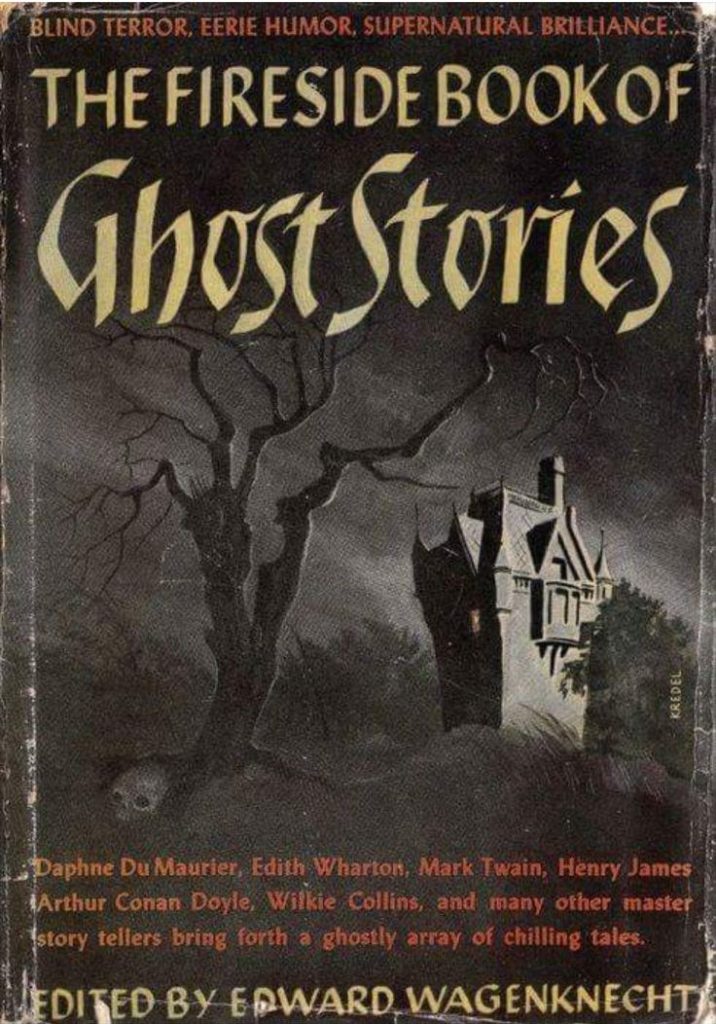


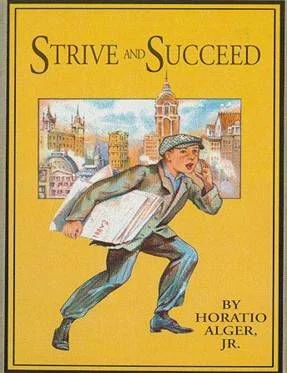

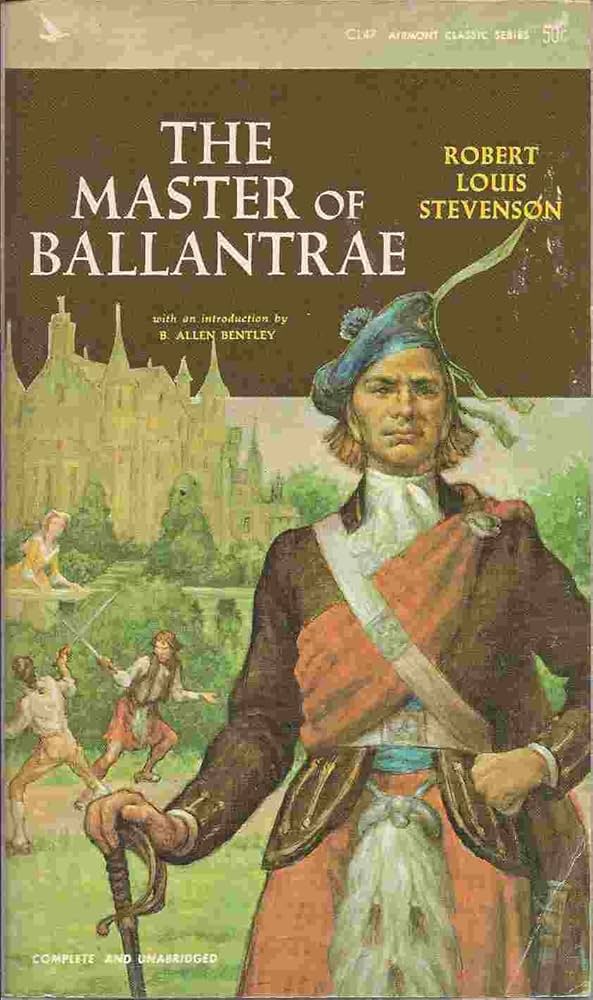


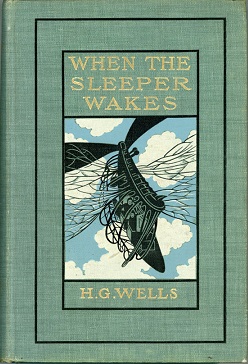








Recent comments